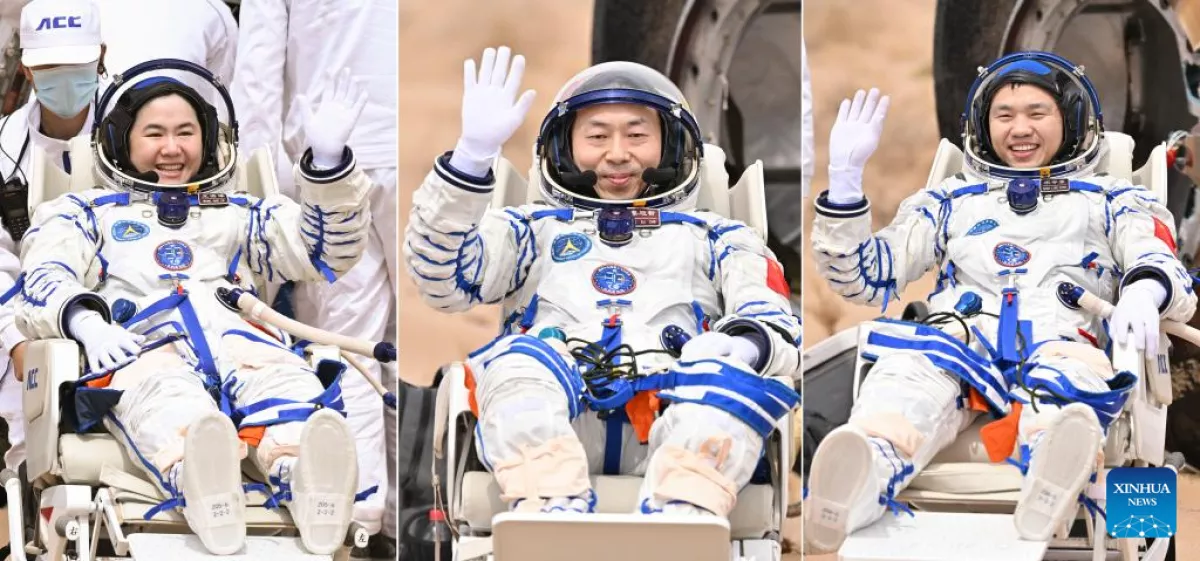Record-setting Chinese space mission ends as Shenzhou-19 astronauts touch down PHOTO
The three astronauts of China’s Shenzhou-19 mission have safely returned to Earth after spending 183 days aboard the Tiangong space station, completing the country’s 14th crewed spaceflight mission.
Cai Xuzhe, Song Lingdong, and Wang Haoze landed in the Shenzhou reentry capsule at 1:08 a.m. Eastern time (0508 UTC) on April 30, Caliber.Az reports, citing foreign media.
The landing occurred within the Dongfeng landing area in China’s Inner Mongolia Autonomous Region, close to the Jiuquan Satellite Launch Centre. Recovery teams reached the site shortly after touchdown, and all three astronauts exited the capsule within the hour, reporting good health.
The mission ended after a successful undocking from Tiangong at 4:00 p.m. Eastern (2000 UTC) on April 29, according to the China Manned Space Engineering Office (CMSEO). The undocking and landing were initially scheduled for a day earlier but were delayed due to adverse weather conditions at the landing site.

Shenzhou-19 launched on October 29, 2024, aboard a Long March 2F rocket from Jiuquan and docked with the Tiangong space station just 6.5 hours later. The arriving crew was greeted by the departing astronauts of the Shenzhou-18 mission. After their half-year stay, the Shenzhou-19 team officially transferred command to the incoming Shenzhou-20 crew on April 28, following their arrival at the station on April 24. The handover ceremony included the symbolic passing of a ceremonial key.
Mission commander Cai Xuzhe, on his second journey to space, has now logged approximately 365 days in orbit, placing him second only to Ye Guangfu among Chinese astronauts in cumulative time spent in space. During Shenzhou-19, Cai also conducted three spacewalks—bringing his career total to five, a new national record for extravehicular activities.
“This is the common home for humanity and needs to be protected by all of us together,” Cai said, reflecting on Earth from orbit.
Song Lingdong, on his first mission to space, expressed pride in the team’s accomplishments. “We’ve transformed the dedication and hard work of all our researchers into scientific research achievements,” he said in remarks to China Central Television (CCTV). He added that he was eager to return to his family, whom he missed "night and day," and emphasised how honoured he felt to serve his country in space.
During their mission, the crew conducted a range of scientific tasks, including three extravehicular activities. One spacewalk in December 2024 set a new world record for duration. Their research included numerous life sciences experiments, such as the study of fruit flies in a sub-magnetic facility.
The Shenzhou-19 mission is part of China’s broader space ambitions, rooted in a space station plan approved in 1992. That long-term vision led to the development of human spaceflight capabilities and small test laboratories. Construction of the Tiangong space station began in 2021 with the launch of the Tianhe core module and was expanded with the addition of two science modules in 2022. China plans to maintain the three-module, T-shaped space station with a permanent crew for at least ten more years.
By Tamilla Hasanova








